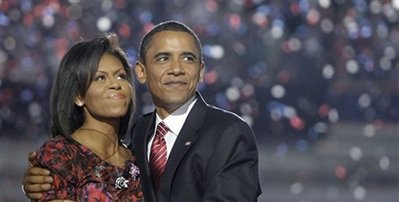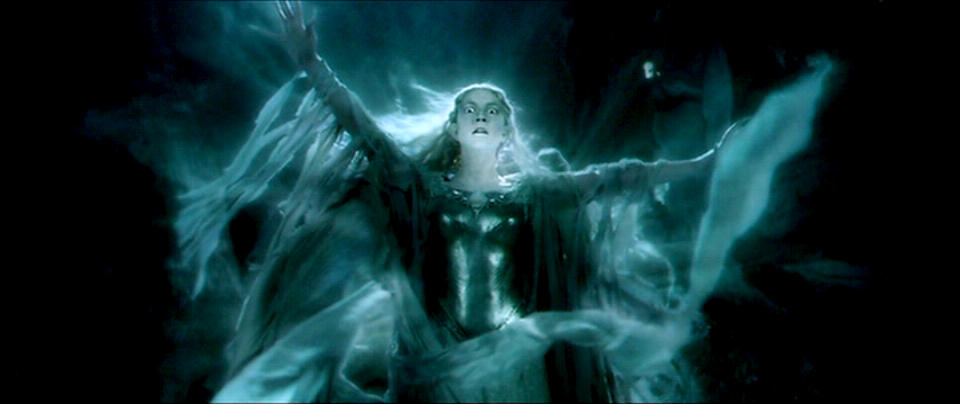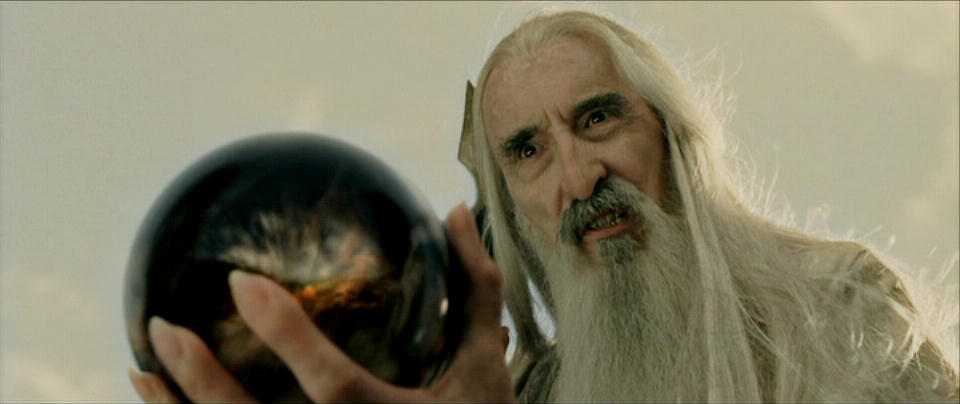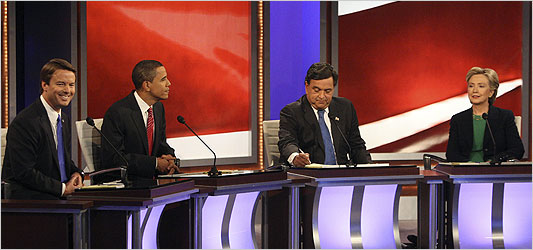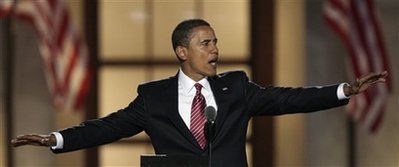
“For eighteen long months, you have stood up, one by one, and said enough to the politics of the past. You understand that in this election, the greatest risk we can take is to try the same old politics with the same old players and expect a different result. You have shown what history teaches us — that at defining moments like this one, the change we need doesn’t come from Washington. Change comes to Washington. Change happens because the American people demand it — because they rise up and insist on new ideas and new leadership, a new politics for a new time. America, this is one of those moments.”
The end of the evening, of course, featured Senator Obama’s historic nomination speech and, as you all already know, he absolutely knocked it out of the park. [Transcript.] As I said in my first post, I thought it “powerful in its can-do faith in America and devastatingly effective in its evisceration of the GOP,” and I’ll stand by that. In fact, in a week of excellent speeches, I thought our nominee’s address was the one that came out on top.
Sen. Obama’s speech succeeded on several different levels at once: It worked as a lofty restatement of central American principles and a concise explanation of what differentiates Democrats from Republicans. It provided hard policy details for those ambivalent about the word “change,” and it threw red meat to the faithful — and food for thought to the undecideds — by going after John McCain on issues across the board. Speaking of which, Obama’s tone toward McCain was note-perfect: Polite enough to the man, Obama was utterly dismissive of his lousy ideas and his endless shilling for Dubya, and he fired a warning shot across his bow about any further attempt to wallow in the usual Republican “patriot games.” In fact, Obama’s speech preemptively made much of the GOP’s usual grab-bag of insinuation and slander, sure to be in full evidence next week in Minnesota, look patently ridiculous. When McCain announced his veep pick yesterday — more on that textbook case of bad judgment in short order — I noticed the podium read “Country First.” After Obama’s speech last night, that old dog’s looking a little lame.
Coming into Thursday night, I thought the best line uttered, in terms of the history books, had come from President Clinton’s Wednesday speech: “People the world over have always been more impressed by the power of our example than by the example of our power.” (The Ann Richards memorial runners-up: Bob Casey’s maverick-sidekick skewering of John McCain on Tuesday, and Al Gore’s recycling bit) But Obama’s speech was filled with great quotables. For example:
And so on. What’s more, Obama’s speech wasn’t only a address for progressives, but a progressive address. It didn’t just offer up a litany of policies and goodies aimed at buying off consumer-voters (tax cuts and free prescription drugs for all!), but called Americans to rally to their individual and collective responsibilities as citizens of the republic. It didn’t talk much of rights and choices, as contemporary liberalism so often does, but emphasized “the American promise” as a shared ideal that binds us all together. He didn’t get bogged down in the soul-deadening, technocratic rhetoric of policy proposals, but used American history and “the American spirit” as the unifying narrative and common tapestry of our entire national community. When it came to our most divisive and contentious issues — abortion, gay marriage, immigration — Obama’s speech didn’t just pick a side and lob grenades at the cultural opposition, but tried to engage and draw out principled conservatives onto neutral ground, without compromising on the positions themselves.
I’ve made the case several times here that, for whatever reason (in part, I think, his background in community organizing — Jane Addams came to similar conclusions in her own time on the streets of Chicago; for another, I think the progressive ideals of the Social Gospel have survived better in the African-American church than they have in our secular democratic politics), Sen. Obama seems to understand and call back to real progressivism like no other presidential nominee we’ve had since RFK. This, thankfully, hasn’t been lost in the move toward the general election.
So, in other words, I loved the speech. And, as I said the other day, actually being at Invesco Field for its delivery was an experience I’ll never forget. I know some people may just find this naive, but after listening to Obama on Thursday night, and after living through all the corruption and incompetence of the last eight years, I refuse to imagine an America that would in good conscience pick John McCain and everything he represents over Barack Obama in two months. That is not my country — We are better than that, and we cannot and will not turn back.
